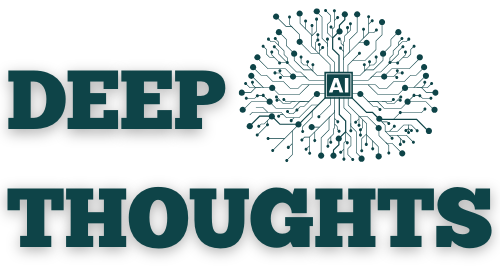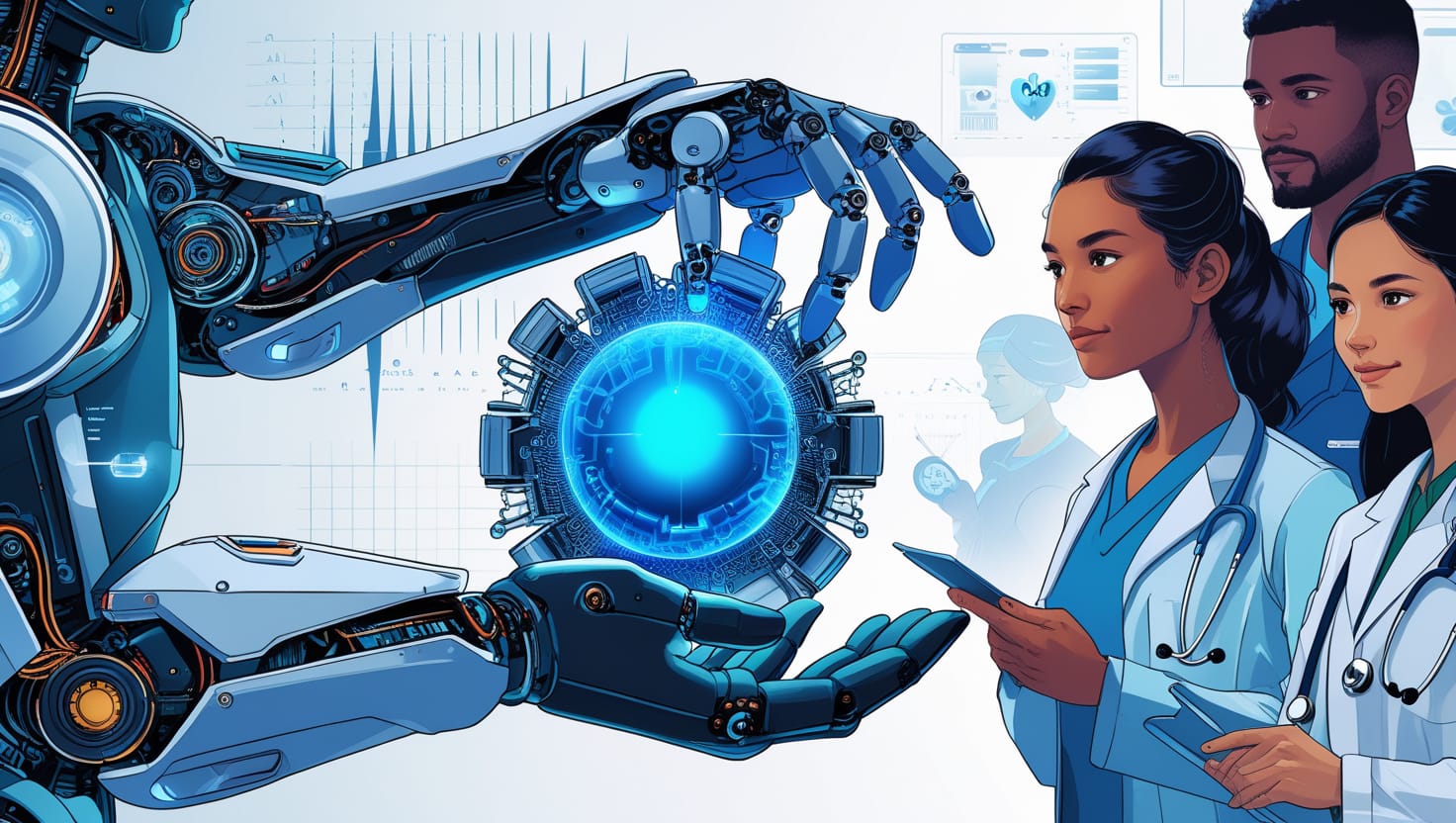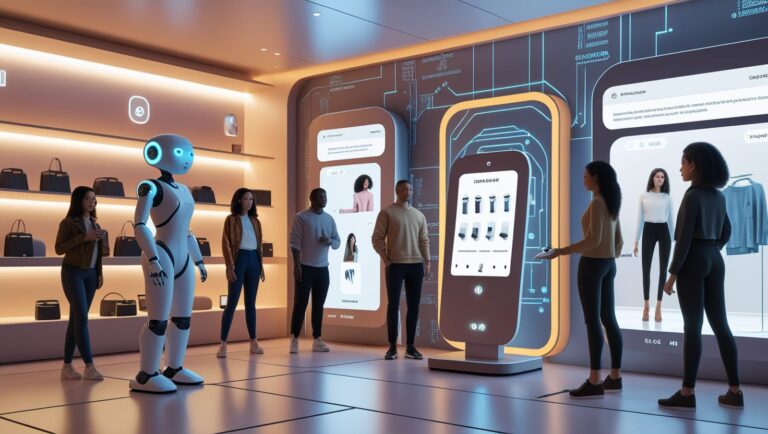Revolutionizing Patient Care and Medical Innovation
Artificial Intelligence (AI) has emerged as a transformative force in the healthcare sector, reshaping how medical professionals diagnose, treat, and prevent diseases. From improving patient outcomes to streamlining administrative tasks, AI is revolutionizing the entire healthcare ecosystem. In this article, we will explore how AI is being used in healthcare, its key benefits, challenges, and future potential.
What is AI in Healthcare?
AI in healthcare refers to the use of machine learning (ML), deep learning, and other AI techniques to analyze data, predict health outcomes, and assist healthcare professionals in making more accurate and efficient decisions. AI systems are trained using vast amounts of medical data such as patient records, lab results, imaging, and genetic information, enabling them to detect patterns and generate insights that can improve diagnosis, treatment, and patient care.
How AI is Being Used in Healthcare
AI applications in healthcare are diverse and touch every aspect of the industry, from clinical care to administrative tasks. Let’s dive into some of the most promising and impactful uses of AI in healthcare.
1. Medical Imaging and Diagnostics
AI has made significant strides in the field of medical imaging, enabling faster and more accurate diagnoses. Machine learning models, particularly deep learning algorithms, are trained to analyze images like X-rays, MRIs, and CT scans. These AI tools can identify patterns and abnormalities that may be difficult for human eyes to detect.
Example: Google Health has developed an AI model that can detect breast cancer from mammograms with greater accuracy than human radiologists. This model was trained using thousands of mammogram images and can help doctors identify potential cancers earlier, improving the chances of successful treatment.
AI is also being used to analyze other medical images, such as those related to heart disease, brain conditions, and lung diseases, allowing healthcare professionals to make more informed and timely decisions.
2. Predictive Analytics and Risk Assessment
AI models can analyze patient data to predict the likelihood of certain health events, such as heart attacks, strokes, or hospital readmissions. By identifying at-risk patients before critical events occur, AI can help healthcare providers take proactive measures to prevent or mitigate these issues.
Example: IBM Watson Health has developed predictive analytics tools that can assess patient data, including vital signs and medical history, to predict the risk of developing certain diseases. These AI models can help doctors intervene earlier, offering personalized treatment plans that improve patient outcomes.
By predicting potential risks, AI allows healthcare providers to deliver more personalized care and allocate resources more efficiently.
3. Drug Discovery and Development
AI is revolutionizing the drug discovery process, significantly reducing the time and cost involved in bringing new drugs to market. Machine learning algorithms analyze vast amounts of biological data to identify promising drug candidates and predict their effectiveness. AI can also help researchers design molecules that target specific diseases or conditions.
Example: Insilico Medicine, an AI-driven drug discovery company, used machine learning to design a new drug for fibrosis in just 46 days—a process that typically takes years. AI helps speed up the identification of molecular compounds and biological pathways that could lead to the development of new treatments for various diseases.
AI is not only speeding up the discovery of new drugs but also helping researchers identify potential treatments for diseases that previously had limited therapeutic options.
4. Personalized Medicine
Personalized medicine, also known as precision medicine, involves tailoring medical treatments to individual patients based on their genetic makeup, lifestyle, and environment. AI plays a critical role in analyzing genetic data, medical records, and other patient-specific information to recommend the most effective treatment options.
Example: The use of AI in genomics allows researchers and doctors to identify genetic mutations that contribute to specific diseases, enabling them to create customized treatment plans for patients. AI can also predict how patients will respond to different medications, helping to avoid adverse reactions and increase the likelihood of a successful outcome.
This personalized approach to healthcare allows doctors to provide more targeted treatments, which can lead to better outcomes and fewer side effects.
5. Virtual Health Assistants and Chatbots
AI-powered virtual assistants and chatbots are revolutionizing patient care by providing timely information, reminders, and support. These AI systems can handle routine tasks such as scheduling appointments, answering medical questions, and providing health advice, freeing up healthcare providers to focus on more complex issues.
Example: The Cleveland Clinic has developed an AI chatbot named “Cleo” that assists patients with appointment scheduling, prescription refills, and general health inquiries. Virtual assistants like Cleo can also help monitor patient symptoms, providing reminders for medication adherence or follow-up visits.
These AI-powered tools improve patient engagement and reduce the burden on healthcare providers, allowing them to spend more time on direct patient care.
6. Robotic Surgery and Assistance
Robotic surgery is another exciting area where AI is making an impact. AI-powered robots assist surgeons by providing enhanced precision, reducing human error, and improving the overall success rate of surgeries. These robots can analyze real-time data during surgery, assist in delicate procedures, and even provide suggestions based on the latest research.
Example: The da Vinci Surgical System, one of the most widely used robotic surgery platforms, is powered by AI algorithms that allow surgeons to perform minimally invasive surgeries with greater accuracy and control. These systems also provide real-time feedback, improving surgical outcomes.
Robotic surgery is helping reduce recovery times, minimize complications, and provide patients with faster and more efficient care.
Benefits of AI in Healthcare
The integration of AI in healthcare offers numerous advantages:
- Improved Diagnostics: AI models can detect diseases at earlier stages, leading to more accurate diagnoses and better treatment outcomes.
- Increased Efficiency: AI systems can automate administrative tasks, streamline workflows, and reduce the workload of healthcare professionals, allowing them to focus on patient care.
- Cost Reduction: AI’s ability to predict diseases and optimize treatment plans helps reduce healthcare costs by preventing costly procedures or hospital readmissions.
- Personalized Care: AI can analyze vast amounts of patient data to tailor treatment plans to individual needs, improving the chances of success.
- Faster Drug Development: AI speeds up the process of discovering new drugs, leading to quicker access to life-saving medications.
Challenges and Concerns
While AI has the potential to revolutionize healthcare, there are several challenges and concerns that need to be addressed:
- Data Privacy and Security: AI systems require access to large amounts of sensitive patient data. Protecting this data and ensuring privacy is a critical issue in healthcare.
- Bias in AI Models: AI models can sometimes inherit biases from the data they are trained on, leading to inaccurate or unfair predictions. Ensuring diversity in training data and developing unbiased algorithms is essential.
- Regulation and Oversight: The rapid adoption of AI in healthcare has outpaced regulatory frameworks. Governments and healthcare organizations must work together to create policies and guidelines to ensure the safe and ethical use of AI.
- Integration with Existing Systems: Many healthcare organizations still rely on legacy systems, making it challenging to integrate AI solutions. Overcoming technological barriers and ensuring seamless integration with existing workflows is crucial for the success of AI in healthcare.
The Future of AI in Healthcare
The future of AI in healthcare looks incredibly promising. As technology continues to evolve, AI is expected to play an even larger role in improving patient outcomes, reducing costs, and advancing medical research. With the help of AI, healthcare providers can deliver more personalized care, make faster and more accurate diagnoses, and develop innovative treatments for previously untreatable conditions.
In the coming years, we may see AI-enabled tools that assist doctors in real-time during patient consultations, advanced robotic surgeries with even higher levels of precision, and AI systems that continuously monitor patients’ health data to detect early signs of medical conditions before they become critical.
AI in healthcare is just beginning to realize its full potential, and the possibilities are endless.





